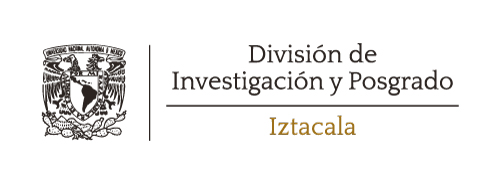PEREZ PLASENCIA CARLOS GUADALUPE

Ubication:
UBIMED, Genomics of Cancer Laboratory 11.
Contact:
Teléfono: 5556239807
Correo electrónico: carlos.pplas@unam.mx

Information:
My academic background has been focused on understanding the genetic, epigenetic, and metabolic molecular processes affected in the development and progression of cancer, with a special emphasis on cervical, breast, ovarian, and colorectal cancer. To achieve this, I have used tools in Genomics, Bioinformatics, and Molecular Biology with the aim of comprehending these processes affected in tumors from a systemic perspective.
Once I completed my postdoctoral stay in Dr. Alfonso Dueñas González’s laboratory at the Biomedical Research Unit, Institute of Biomedical Research, UNAM/INCan, and had a postdoctoral stay at Stanford University, USA, in Dr. John Coller’s laboratory, I joined FES-Iztacala in 2010, where I lead the Cancer Genomics Laboratory at the Biomedicine Unit.
The research areas I am interested in are as follows:
- Search for prognostic markers associated with clinical response.
- Transcriptional regulators associated with the multi-drug resistance phenotype in neoplastic cells.
- Epigenetic regulation in solid tumors (CpG island methylation, lncRNAs, and microRNAs).
- Identification of mutations in genes associated with the development of cancer: BRCA1 and BRCA2 in Mexican patients with breast cancer.
- Aberrant tumor metabolism as a therapeutic target.
To date, I have published more than 130 international articles indexed in high-impact journals, and these works have been cited internationally in approximately 4,000 international articles. One of my original articles was recommended by the Faculty of Thousand as one of the best works in the field of Bioinformatics and Cancer Genomics in 2007.
To finance my research projects, I have obtained over 15 million pesos in funding from various calls, primarily from CONACyT, such as National Issues, Health Sector Funds, and Frontiers of Science.
I have received various recognitions, one of them from the National Institutes of Health in the United States of America, as a collaborator on the Cancer Genome Anatomy Project. The Universidad Autónoma Metropolitana honored me in 2008 and 2009 with the Special Ramón Villarreal Chair. Since 2007, I have been rated at the highest level by the National System of Researchers, which is level 3. The National Health Foundation in coordination with the Ministry of Health and the Glaxo Foundation awarded me First Place in Clinical Research in 2013 for the work “Identification of mutations in BRCA1 and BRCA2 in patients with breast cancer.” In this study, 200 patients with hereditary breast cancer backgrounds were analyzed, and exclusive mutations in the Mexican population were identified. I also received First Place in the National Basic Research Award – FUNSALUD-GSK, Ministry of Health, 2015. The title of the work was “Highly efficient concurrent treatment with mTOR and aerobic glycolysis inhibitors in an in vivo model of triple-negative breast cancer.” Recently, the State Council for Science and Technology in the State of Mexico honored me with the State Science Award in 2015. In 2016, in collaboration with Dr. Nadia Jacobo from the National Institute of Nutrition and Medical Sciences, we obtained first place in the competition of the National Chamber of the Pharmaceutical Industry for the work “COMBINACIÓN TERAPÉUTICA EXITOSA PARA EL TRATAMIENTO DEL CÁNCER DE MAMA TRIPLE NEGATIVO Y DE COLON: ESTUDIO PRECLÍNICO” Likewise, in the same year, we received first place in the Coca-Cola Award for the best research work in food.
Recently, my workgroup has submitted for intellectual protection the work titled “Prototype for Early Response Diagnosis for Patients Diagnosed with Locally Advanced Cervical Cancer,” which is registered with the number MX/a/2014/015826 at the Mexican Institute of Industrial Property (IMPI). Additionally, the results were published in the indexed journal Translational Oncology.
In this study, the transcriptome of 90 patients with locally advanced cervical cancer was analyzed. This disease affects up to 40% of patients, leading to recurrence or inadequate response to conventional treatments. We demonstrated the presence of a molecular signature composed of 27 genes capable of identifying women at risk of recurrence after diagnosis. Therefore, patients with a predicted risk of recurrence may be considered for new pharmacological combinations, enhancing their treatment response. This research is currently in the final stage of evaluation and validation, with an increasing number of patients being analyzed for the 27-gene prognostic profile.
This work represents the largest genomics study in Mexico, focused on identifying molecular signatures associated with the clinical outcomes of an important oncological disease in our country. It is also worth mentioning that the research was conducted entirely in Mexico, involving specialists from various fields and bringing together a multidisciplinary and inter-institutional team.
On an international level, I serve as an editor for the prestigious journal Frontiers in Oncology in the field of Cancer Metabolism. I also work as a reviewer for international grants for scientific agencies in Peru, Colombia, and Argentina. Additionally, I have reviewed at least a hundred international papers in various journals focusing on the field of cancer.
